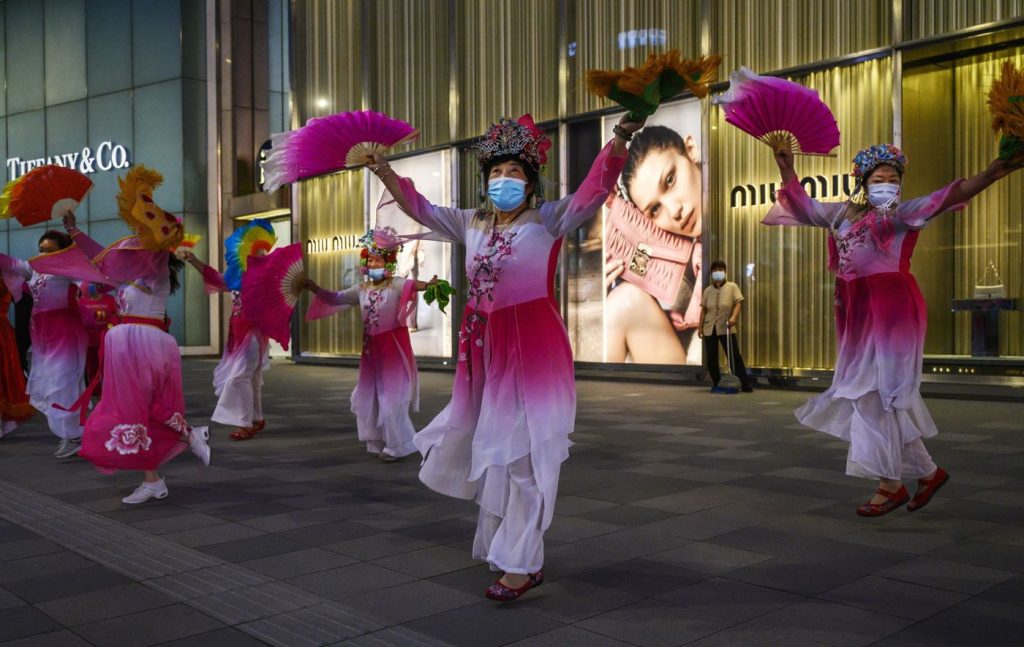
Jeff Meng, a 25-year-old watch lover from a well-heeled Guangdong family, had 160,000 yuan ($22,800) burning a hole in his pocket. He could not find the Rolex Daytona watch he wanted, dubbed “panda” for its black-and-white face, anywhere in China.
Thanks to the coronavirus pandemic that’s halted travel and disrupted networks of parallel importers, Chinese high-end shoppers like Meng — who collectively spend $111 billion a year on luxury goods, powering over a third of the global industry — are finding it hard to spend their cash.
Store traffic in China is creeping back up after falling as much as 80% at the virus outbreak’s peak there earlier this winter, hammering sales of brands ranging from Burberry Group Plc to Kering SA’s Gucci. The recovery could accelerate in the coming weeks, fueled by so-called “revenge spending” sprees.
That’s forcing global luxury houses from Balenciaga to Montblanc to rethink how to reach Chinese consumers on the mainland, despite long-standing concerns that range from counterfeiters to powerful e-commerce platforms that set the rules. The halt to travel is also fueling the rise of a second-hand luxury market in China as consumers seek certain styles or models they can’t find in local stores.
“Now, travel is impossible, and daigou sellers are either back on the mainland or stranded in Europe,” said Meng. “The pandemic made me realize you can’t easily get what you fancy in China.”
From Savile Row to Swiss Watches, Luxury Rules Have Changed
Cognizant of the potential of Chinese consumers who don’t travel overseas, luxury houses had already been rolling out plans to expand on the mainland. The pandemic has now hastened that shift and imbued it with urgency.
With other factors like perceived anti-Chinese racism in western countries exacerbated by the coronavirus, and the Chinese government’s desire to bring spending home to boost its ailing economy, it’s likely that Chinese luxury buyers won’t revert to previous patterns even after the crisis passes.
“Chinese feel unsafe in foreign countries, which is why they consume at home,” said Amrita Banta, managing director at luxury consultancy Agility Research. “Brands should increase importing from foreign countries into China and offer a wider and well-priced range. They can now expand their reach to more cities — even smaller towns which have a propensity to spend.”
cover photo: Chinese women wear protective masks and costume as they dance for exercise outside a luxury shopping mall in Beijing on June 4.Photographer: Kevin Frayer/Getty Images.
To read the full article, please click here

 Previous Post
Previous Post
